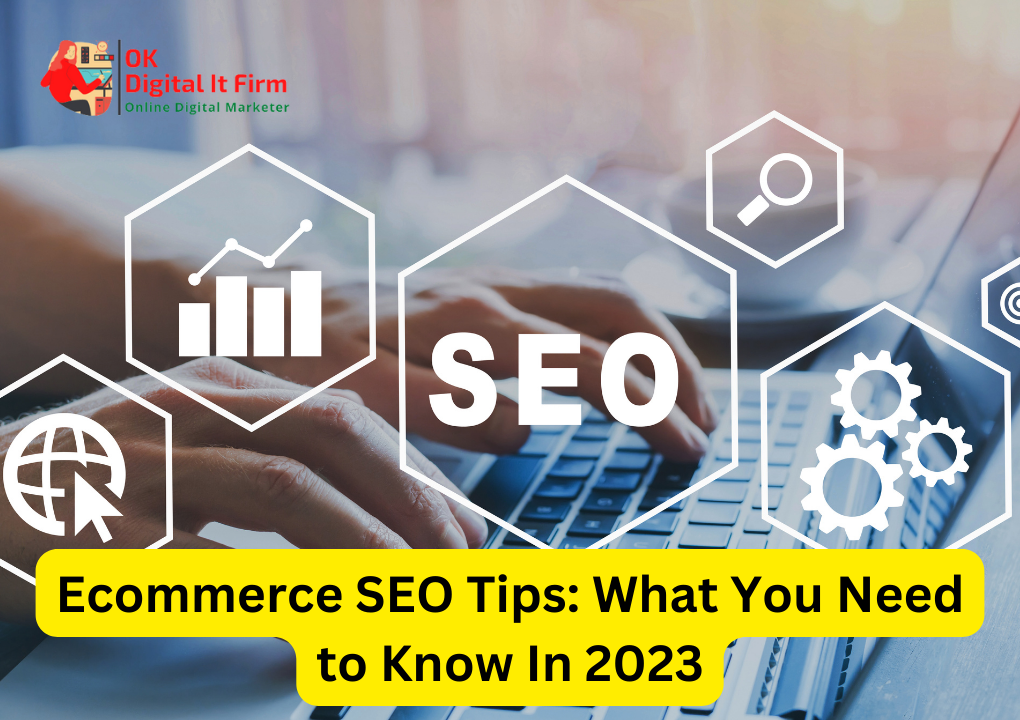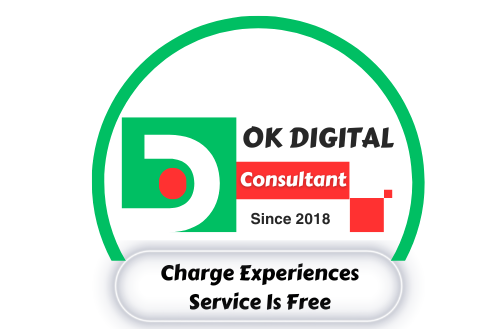ecommerce seo tips, ecommerce seo, seo, seo tips, ecommerce seo tools, ecommerce seo experts, ecommerce seo course, ecommerce seo meaning, ecommerce,
In the rapidly evolving landscape of online commerce, staying ahead of the competition requires more than just a visually appealing website and quality products. Search Engine Optimization (SEO) remains a cornerstone of online success, and for ecommerce businesses, mastering the art of ecommerce SEO is paramount.
As we step into 2023, new strategies and techniques are emerging to help businesses thrive in the digital marketplace. In this article, we’ll delve into the essential ecommerce SEO tips that can drive traffic, boost conversions, and elevate your online store’s visibility.
Table of Contents
User-Centric Content: The Heart Of Ecommerce SEO
Creating high-quality, user-centric content is no longer just a suggestion; it’s a necessity. Search engines have become incredibly sophisticated in understanding user intent, and they favor websites that provide valuable and relevant information.
When crafting content for your ecommerce site, think beyond product descriptions. Consider including informative blog posts, how-to guides, and comparison articles that address your audience’s pain points.
By doing so, you not only establish yourself as an authority in your industry but also increase the likelihood of ranking higher in search results.
Voice Search Optimization: Conversational Commerce On The Rise
With the rise of smart devices and virtual assistants, voice search has become a game-changer in ecommerce. People are now searching for products using natural language queries, so optimizing your content for voice search is crucial.
Incorporate long-tail keywords and phrases that reflect how people speak in everyday conversations. Focus on providing concise and direct answers to common questions, as this can help your website appear in featured snippets—position zero in search results—which is highly coveted real estate.
Mobile-First Indexing: A Non-Negotiable Priority
Mobile-first indexing is no longer an option; it’s a necessity. Google now primarily uses the mobile version of a website’s content for indexing and ranking. This means your ecommerce site must be responsive and designed with mobile users in mind.
Ensure that your website loads quickly, has a user-friendly interface, and offers a seamless shopping experience on all devices. Google’s Mobile-Friendly Test can help you identify areas that need improvement.
Technical SEO: The Backbone Of Ecommerce Success
While engaging content is crucial, the technical aspects of SEO should not be overlooked. Properly structured URLs, optimized meta tags, schema markup for products, and a well-organized site structure all contribute to improved search visibility.
Regularly audit your website for broken links, ensure your site’s navigation is intuitive, and use descriptive ALT text for images to enhance accessibility and SEO.
Page Speed Optimization: Need For Speed In Ecommerce
In today’s fast-paced world, patience is thin, and a slow-loading website can lead to high bounce rates and lost sales. Page speed is a ranking factor for Google, and it directly impacts user experience.
Compress images, enable browser caching, and leverage Content Delivery Networks (CDNs) to distribute content more efficiently. Regularly monitor your site’s performance using tools like Google PageSpeed Insights or GTmetrix, and address any issues promptly.
Secure And Accessible WEbsite: HTTPS and Beyond
Security is paramount in the ecommerce realm. Google considers HTTPS a ranking signal, so ensure your website is secured with an SSL certificate.
Beyond that, focus on creating an accessible website for all users, including those with disabilities. Not only is this a legal requirement in many places, but it also improves user experience and can indirectly benefit your SEO efforts.
Influencer Collaboration: A New Dimension Of Link Building
Earning high-quality backlinks remains crucial for ecommerce SEO, but the approach has evolved. Collaborating with influencers and industry experts can lead to organic, authoritative links.
When influencers authentically endorse your products, they often link back to your site, exposing it to their engaged audiences. This not only drives traffic but also signals to search engines that your website is a valuable resource.
Vido Optimization: Tapping into Visual Searches
Video content is gaining momentum as a powerful tool for ecommerce SEO. Videos can captivate your audience, explain complex products, and improve user engagement.
Optimize your video content by using descriptive titles, detailed descriptions, and relevant tags. Hosting videos on platforms like YouTube and embedding them into your product pages can also enhance your website’s authority and visibility.
User Experience and Dwell Time: Engagement Matters
User experience (UX) goes beyond just design; it’s about creating an environment where visitors stay longer and engage more.
Google considers dwell time (the amount of time a user spends on your site) as a potential ranking factor. Make navigation intuitive, enhance product filtering, and provide clear calls-to-action. The longer users stay on your site, the more likely they are to convert.
Data Analytics and Continuous Inprovement: The SEO Cycle
In the dynamic world of ecommerce SEO, data is your guiding light. Leverage tools like Google Analytics to track key metrics such as organic traffic, conversion rates, and bounce rates.
Regularly review and analyze this data to identify areas for improvement. A/B testing, tweaking content strategies, and refining your approach based on data insights will ensure your ecommerce SEO efforts remain effective and adaptable.
Pros and Cons of Ecommerce SEO in 2023
Ecommerce SEO (Search Engine Optimization) is a powerful tool that can significantly impact the success of your online store. However, like any strategy, it comes with its own set of advantages and challenges. Let’s explore the pros and cons of implementing Ecommerce SEO in 2023.
Pros:
- Increased Organic Traffic: The primary goal of Ecommerce SEO is to improve your website’s visibility in search engine results. Higher visibility means more organic (unpaid) traffic to your site, increasing your chances of attracting potential customers.
- Cost-Effective: Compared to paid advertising, Ecommerce SEO is a cost-effective long-term strategy. Once your site ranks well, the traffic it generates doesn’t require ongoing payments, making it a sustainable option for driving traffic and sales.
- Credibility and Trust: High search engine rankings imply credibility and trustworthiness to users. When your website appears on the first page of search results, it signals to potential customers that your store is a reputable source.
- Targeted Audience: Ecommerce SEO allows you to target specific keywords and phrases relevant to your products or services. This means you’re reaching an audience actively searching for what you offer, increasing the likelihood of conversions.
- Long-Term Results: While SEO takes time to yield results, the effects can be long-lasting. Once you establish a strong online presence and high-quality content, your rankings can remain stable, providing continuous traffic and conversions.
- Brand Awareness: Improved visibility in search results exposes your brand to a wider audience. Even if users don’t immediately make a purchase, they might remember your brand for future reference.
Cons:
- Time-Consuming: Ecommerce SEO is not a quick fix; it requires time and patience. Achieving noticeable improvements in rankings can take months, making it unsuitable for businesses seeking immediate results.
- Algorithm Changes: Search engine algorithms are constantly evolving, and what works today might not be as effective tomorrow. Staying up-to-date with algorithm changes and adjusting your strategy accordingly is essential.
- Intense Competition: Ecommerce is a highly competitive landscape, and ranking well for popular keywords can be challenging. Competing against established brands and larger retailers requires consistent effort and a well-rounded strategy.
- Unpredictable Results: SEO success isn’t guaranteed. Even with meticulous optimization, factors like changes in user behavior, new competitors, or algorithm updates can impact your rankings.
- Technical Challenges: Technical aspects of SEO, such as site speed optimization and structured data implementation, can be complex. Inadequate technical optimization can hinder your progress.
- Resource and Skill Requirements: Effective Ecommerce SEO demands a range of skills, from content creation to technical optimization. Small businesses or those with limited resources might struggle to allocate the necessary time and expertise.
- Short-Term ROI Uncertainty: Unlike paid advertising, where you can calculate immediate returns, SEO’s ROI might not be evident in the short term. It requires a broader perspective and patience to see significant results.
Conclusion Of Ecommerce SEO

In conclusion, ecommerce SEO in 2023 demands a holistic approach that combines high-quality content, technical finesse, and a focus on user experience.
By staying up-to-date with the latest trends and continuously optimizing your website, you can not only rank higher in search results but also provide an exceptional online shopping experience that keeps customers coming back.
Embrace these ecommerce SEO tips, adapt them to your specific business needs, and watch your online store thrive in the competitive digital landscape.
FAQs about Ecommerce SEO in 2023
- What is Ecommerce SEO, and why is it important? Ecommerce SEO, or Ecommerce Search Engine Optimization, refers to the practice of optimizing your online store’s website and content to rank higher in search engine results. It’s essential because it helps drive organic (unpaid) traffic to your site, increases visibility, and boosts sales.
- How has user-centric content changed the game for Ecommerce SEO? User-centric content focuses on providing valuable information to users beyond just product descriptions. This approach establishes your brand’s authority, enhances user experience, and improves your chances of ranking higher in search results.
- Why should I optimize my ecommerce site for voice search? Voice search is on the rise, with people using natural language when searching. Optimizing for voice search involves using conversational keywords and providing direct answers to common questions, which can lead to higher rankings and visibility in voice search results.
- What is mobile-first indexing, and why is it crucial for ecommerce? Mobile-first indexing means that search engines prioritize the mobile version of your website for indexing and ranking. Given the prevalence of mobile users, having a responsive, user-friendly mobile site is essential for reaching and engaging your audience.
- How does technical SEO impact my ecommerce site’s performance? Technical SEO involves optimizing the technical aspects of your site, such as URL structure, meta tags, and site speed. These optimizations improve user experience, enhance search engine visibility, and contribute to better rankings.
- Why is page speed optimization vital for ecommerce success? Page speed directly affects user experience. A slow-loading site can lead to high bounce rates and lost sales. Optimizing page speed through techniques like image compression, browser caching, and CDNs improves user satisfaction and search rankings.
- Why should I prioritize website security and accessibility for ecommerce SEO? A secure website with an SSL certificate is essential for user trust and search engine rankings. Additionally, creating an accessible website benefits all users and is often required by law, leading to improved user experience and indirectly benefiting SEO.
- How does influencer collaboration impact ecommerce SEO? Collaborating with influencers can result in valuable backlinks and increased visibility. When influencers endorse your products and link to your site, it not only drives traffic but also signals to search engines that your website is authoritative.
- How does video optimization contribute to ecommerce SEO? Video content engages users and can improve conversions. Optimizing video content with descriptive titles, tags, and detailed descriptions helps search engines understand and rank your videos, enhancing your website’s authority.
- Why does user experience (UX) matter for ecommerce SEO? User experience plays a significant role in SEO, influencing metrics like dwell time and bounce rates. A well-designed, user-friendly site with intuitive navigation and clear calls-to-action encourages visitors to stay longer, explore, and convert.
